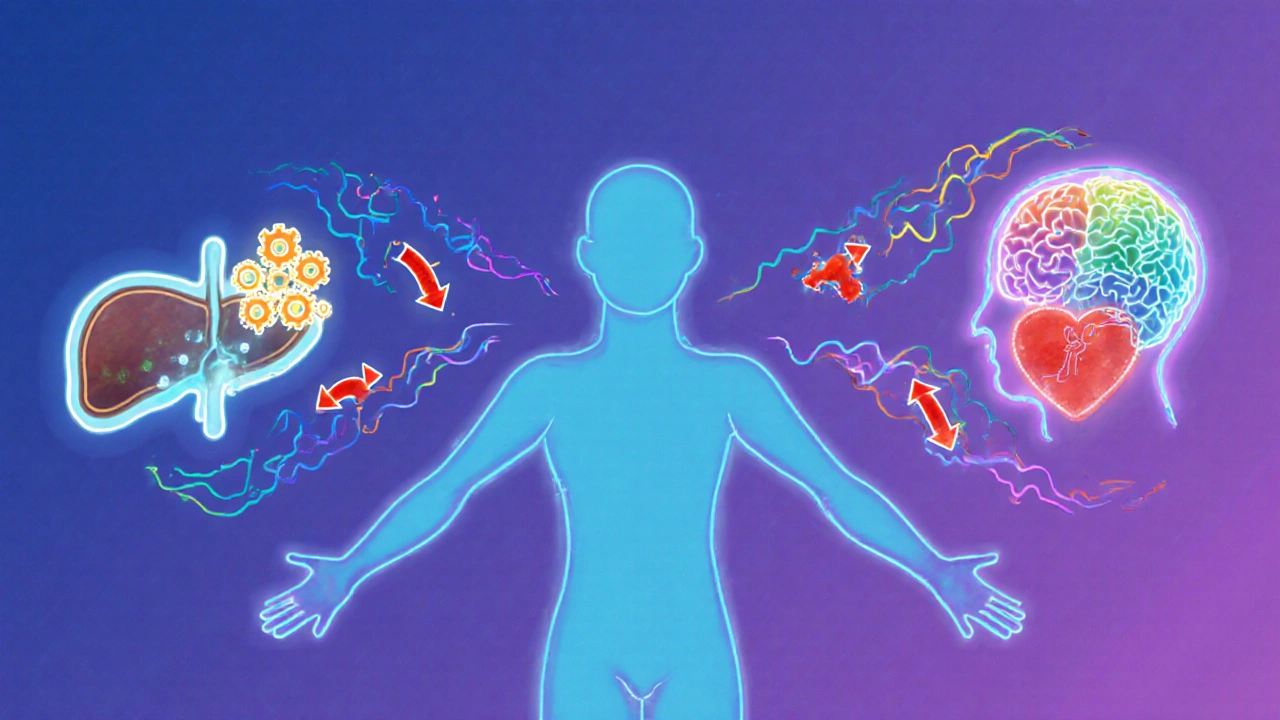Understanding Subarachnoid Hemorrhage
Before we delve into the connection between subarachnoid hemorrhage and cognitive impairments, it's important to understand what subarachnoid hemorrhage is. This is a form of stroke that results when a blood vessel on the surface of the brain ruptures and bleeds into the space between the brain and the skull. It's a life-threatening condition that requires immediate medical attention. The symptoms are often sudden and intense, and can include a severe headache, loss of consciousness, and seizures.
Identifying Cognitive Impairments
Cognitive impairments refer to a range of disorders that affect cognitive functioning, such as thinking, reasoning, memory, attention, and language. These disorders can be caused by various factors, including brain injury, stroke, dementia, and mental illness. Cognitive impairments can significantly affect a person's ability to perform daily activities and live independently.
Linking Subarachnoid Hemorrhage and Cognitive Impairments
Research has shown that there is a significant link between subarachnoid hemorrhage and cognitive impairments. This is because the hemorrhage can cause damage to the brain, leading to cognitive difficulties. The extent of these difficulties can vary greatly, depending on the severity of the hemorrhage and the area of the brain affected.
Effects of Subarachnoid Hemorrhage on Cognitive Function
Subarachnoid hemorrhage can have a profound effect on cognitive function. It can cause issues with memory, attention, processing speed, and executive function - which includes skills such as planning, organizing, and multitasking. It can also lead to changes in mood and personality, and can cause difficulties with speech and language.
Early Detection and Diagnosis
Early detection and diagnosis of both subarachnoid hemorrhage and cognitive impairments are crucial for effective treatment and management. If you or a loved one are experiencing symptoms of either condition, it's important to seek medical attention immediately. Tests such as brain scans and cognitive assessments can help to identify the problem and guide treatment.
Management and Treatment Options
While subarachnoid hemorrhage is a medical emergency that often requires surgery, cognitive impairments can often be managed with a combination of medication, therapy, and lifestyle changes. Cognitive rehabilitation therapy can help to improve cognitive function, while medication can help to manage symptoms.
The Role of Rehabilitation
Rehabilitation plays a crucial role in the recovery process after a subarachnoid hemorrhage, particularly when it comes to managing cognitive impairments. This can involve a range of therapies, including physical, occupational, and speech therapy, as well as cognitive rehabilitation therapy. The goal is to help the individual regain as much function as possible and improve their quality of life.
Living with Cognitive Impairments after Subarachnoid Hemorrhage
Living with cognitive impairments after a subarachnoid hemorrhage can be challenging, but there are strategies and resources available to help. This can include support groups, counseling, and assistive devices, as well as strategies for managing symptoms and improving cognitive function.
The Importance of Support
Support from family, friends, and healthcare professionals is crucial for individuals living with cognitive impairments after a subarachnoid hemorrhage. This support can help to manage the emotional impact of the condition, assist with daily activities, and provide encouragement during the recovery process.
Future Research and Developments
Research into the connection between subarachnoid hemorrhage and cognitive impairments is ongoing, with the aim of improving our understanding of these conditions and developing more effective treatments. With advances in medical technology and our understanding of the brain, there is hope for better outcomes for individuals affected by these conditions in the future.






Wiley William
June 28, 2023 AT 13:28Tim H
June 29, 2023 AT 07:01Matt Renner
June 30, 2023 AT 04:37Ifeoluwa James Falola
June 30, 2023 AT 21:37Ramesh Deepan
July 1, 2023 AT 18:57Wayne Rendall
July 1, 2023 AT 21:27Adam Phillips
July 2, 2023 AT 06:32april kakoske
July 3, 2023 AT 03:39Umesh Sukhwani
July 3, 2023 AT 09:31May Zone skelah
July 4, 2023 AT 02:46Pradeep Meena
July 4, 2023 AT 13:20Vishnupriya Srivastava
July 5, 2023 AT 01:30Wiley William
July 5, 2023 AT 18:29